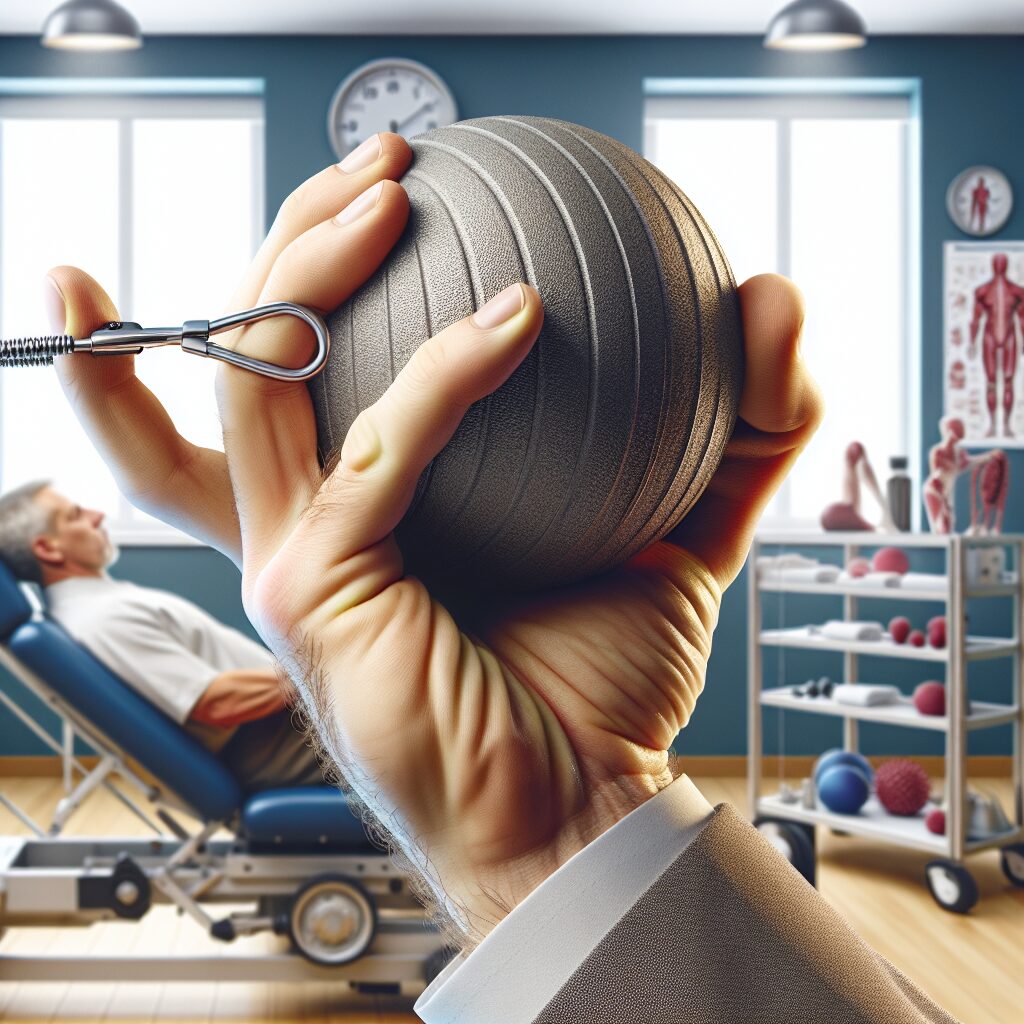Testosterone replacement therapy (TRT) is a medical treatment that is used to restore the body’s natural production of testosterone, a hormone essential for healthy functioning in men. While it can be an effective treatment for symptoms associated with low testosterone levels, it also carries certain risks and side effects, including the potential for testicular shrinkage. In this article, we will look at what TRT is and whether or not it can lead to testicular atrophy.Yes, Testosterone Replacement Therapy (TRT) can cause testicle shrinkage. The decrease in size can be temporary or permanent depending on the type of TRT being used and a person’s individual response to treatment.
Side Effects of TRT
Testosterone replacement therapy (TRT) is a common treatment for men who have low testosterone levels. While TRT can be beneficial, there are some potential side effects that should be considered before starting treatment. The most common side effects of TRT include acne, increased risk of blood clots, increased red blood cells, and changes in cholesterol levels. Other less common side effects include water retention, gynecomastia (enlarged breasts in men), and changes in libido. It is important to discuss the risks and benefits of TRT with your doctor before deciding if it is the right treatment for you.
Acne is a common side effect of testosterone replacement therapy. While it typically resolves when treatment is stopped, some people may experience persistent acne even after discontinuing treatment. If you are concerned about acne developing during TRT, talk to your doctor about using a topical or oral medication to help reduce the severity of the condition.
In addition to acne, TRT can increase the risk of blood clots forming in the veins and arteries. These clots can lead to serious medical complications such as stroke or pulmonary embolism if they are not treated quickly. To reduce this risk, your doctor may recommend taking a blood thinner while on TRT.
TRT can also increase red blood cell production which can lead to an increased risk for heart attack and stroke if left untreated. Your doctor may order regular blood tests to check for signs of high red blood cell counts during your treatment period. If high red blood cell counts are detected, your doctor may adjust your dosage or recommend discontinuing TRT altogether.
Finally, testosterone replacement therapy can cause changes in cholesterol levels which can lead to an increased risk for heart disease if left untreated. A lipid profile should be done at least every six months while on TRT to monitor cholesterol levels and ensure they remain within normal range.
What is Testosterone Replacement Therapy (TRT)?
Testosterone Replacement Therapy (TRT) is a form of hormone replacement therapy that involves the administration of testosterone, a naturally occurring hormone, to people suffering from low levels of testosterone. TRT has been used to treat a variety of conditions such as hypogonadism, infertility, and certain types of sexual dysfunction. In some cases, TRT may also be used to help improve athletic performance or promote muscle growth in bodybuilders.
Who Is a Candidate for TRT?
Generally, the best candidates for Testosterone Replacement Therapy are men with low testosterone levels due to an underlying medical condition. This could include conditions such as hypogonadism (low production of testosterone by the testicles), certain types of cancer, or other chronic illnesses. Additionally, older men whose natural testosterone levels have diminished with age may also be good candidates for TRT.
How Does TRT Work?
Testosterone Replacement Therapy works by replenishing the body’s natural testosterone supply through the use of synthetic hormones or extracts from animal sources. Generally, these treatments involve injections or topical applications that are administered on a regular basis. The exact dosage and schedule will depend on the individual’s health needs and goals. During treatment, it is important to monitor hormone levels regularly in order to adjust dosages as needed. With proper monitoring and adjustments, TRT can be an effective way to help restore natural levels of testosterone in those suffering from low levels due to medical conditions or age-related decline.
How Can I Minimize the Side Effects of TRT?
Testosterone Replacement Therapy (TRT) is a popular treatment for men with low testosterone levels. While it can be effective in treating the symptoms of low testosterone, it can also cause some unwanted side effects. Fortunately, there are a few steps you can take to minimize the potential side effects of TRT.
One of the most important things you can do to minimize the side effects of TRT is to monitor your blood levels closely. Certain blood levels, such as hematocrit and prostate-specific antigen (PSA), should be monitored on a regular basis. If these levels become too high, your doctor may need to adjust your dosage or recommend alternative treatments.
You should also talk to your doctor about any medications you are taking, as certain medications may interact poorly with testosterone replacement therapy. Your doctor may recommend that you stop taking certain medications or adjust your dosage accordingly.
It’s also important to follow a healthy lifestyle while on TRT. Eating a balanced diet and getting regular exercise can help reduce the risk of potential side effects. Additionally, try to reduce stress levels and get plenty of restful sleep each night.
Finally, consider talking to your doctor about other forms of hormone replacement therapy (HRT). HRT can be an effective alternative for some men who cannot tolerate testosterone replacement therapy due to its side effects. There are several different types of HRT available, so your doctor will be able to help you find the best option for you.
By following these tips, you should be able to minimize the potential side effects of testosterone replacement therapy and enjoy its many benefits without worrying about unwanted complications.
TRT vs Anabolic Steroids
Testosterone Replacement Therapy (TRT) is a type of medical treatment that is used to treat low testosterone levels in men. It involves using synthetic hormones or natural testosterone supplements to replace the testosterone that the body isn’t producing. TRT is usually prescribed when a man has consistently lower than normal levels of testosterone, and it is used to reduce symptoms such as fatigue, low libido, poor concentration, and decreased muscle mass. TRT can also help improve the quality of life for those suffering from conditions such as hypogonadism or delayed puberty.
Anabolic steroids, on the other hand, are synthetic hormones that are generally used to increase muscle mass and strength. They are often abused by bodybuilders and athletes for performance enhancement purposes, and they can cause serious side effects like liver damage, increased risk of heart disease, infertility, depression, and aggression. Anabolic steroids are illegal in many countries and should not be used without medical supervision.
The primary difference between TRT and anabolic steroids is that TRT is a medically approved treatment for low testosterone levels while anabolic steroids are not approved for use in any medical setting. TRT has been clinically proven to be safe and effective when used correctly while anabolic steroids have not been studied in depth due to their potential for abuse and related side effects.

Does Low Testosterone Cause Testicular Atrophy?
Testosterone is an important hormone in the male body, playing a vital role in sexual development and reproduction. Low levels of testosterone can lead to a variety of health issues, including testicular atrophy. Testicular atrophy is a condition in which the testicles shrink due to reduced testosterone production. This can cause fertility problems and other health issues.
A number of factors can contribute to low testosterone levels. These include age, genetic factors, certain medical conditions, and lifestyle choices such as smoking or drug use. In some cases, medications or treatment for other conditions can also interfere with normal hormone production. As men age, their natural production of testosterone may decline gradually over time.
Testicular atrophy is one of the most common symptoms of low testosterone levels. This condition can cause a variety of symptoms including a decrease in sex drive, reduced muscle mass and strength, fatigue, depression, and difficulty concentrating. In extreme cases, testicular atrophy may even lead to infertility due to the inability to produce sperm properly.
Treatment for testicular atrophy caused by low testosterone levels typically involves hormone replacement therapy (HRT). HRT involves taking hormones such as testosterone in order to restore normal hormone levels. This treatment can help alleviate many of the symptoms associated with low testosterone levels and prevent further damage to the testicles from occurring. It is important to note that HRT should only be used under the guidance of a doctor and should not be used without medical supervision as it may have serious side effects if not monitored correctly.
In conclusion, low testosterone levels can cause testicular atrophy which can lead to fertility problems and other serious health issues if left untreated. Treatment for this condition typically involves hormone replacement therapy which should only be done under medical supervision in order to avoid potential side effects.
Testicle Size and Fertility
The size of a man’s testicles may be linked to his fertility. While there is no definitive answer as to whether or not this is true, scientific research suggests that it could be a factor in a man’s reproductive capability. Studies have shown that men with larger testicles are more likely to produce higher concentrations of spermatozoa than those with smaller testicles. Sperm concentration is often an important indicator of fertility, as higher concentrations tend to increase the chances of conception.
In addition, studies have also found that men with larger testicles tended to have higher testosterone levels than those with smaller testicles. Testosterone is an important hormone for male fertility, as it helps regulate sperm production and sexual desire. It has also been linked to increased semen quality, which can improve fertility.
While there is some evidence linking testicle size and fertility, it should not be used as a definitive indicator of a man’s reproductive capabilities. Other factors such as age, lifestyle choices, and medical conditions can all have an effect on male fertility. It is important for men who are concerned about their fertility to consult their doctor for advice and treatment options.
Overall, the evidence linking testicle size and fertility is inconclusive at best. While there may be some correlation between the two factors, there are many other factors that can affect a man’s reproductive health and should be considered when evaluating a man’s potential for conceiving a child.
Increase Testosterone Levels Naturally
Testosterone is an important hormone in the body that helps regulate many bodily functions, including energy levels, mood, sex drive, and muscle mass. Low testosterone levels can cause a variety of symptoms, such as fatigue, depression, reduced sex drive, and difficulty building muscle. Fortunately, there are several natural ways to increase testosterone levels and help improve overall health.
Exercise Regularly
Regular exercise is one of the most effective ways to naturally boost testosterone levels. Both aerobic exercise and resistance training can help increase testosterone production. Aerobic exercise helps increase circulation and improve overall cardiovascular health which in turn can have a positive effect on testosterone production. Resistance training stimulates the release of hormones such as growth hormone which also aids in increasing testosterone levels.
Reduce Stress
Stress has been linked to a decrease in testosterone production as well as an increase in cortisol, the stress hormone. High cortisol levels can lead to a decrease in testosterone production and an imbalance between the two hormones can lead to numerous health issues. It is important to find ways to reduce stress such as exercising regularly or practicing mindfulness and meditation.
Get Enough Sleep
Getting enough sleep is essential for healthy hormone production including testosterone. Studies have shown that not getting enough sleep or having poor quality sleep can lead to lower testosterone levels. It is important to get at least 7-8 hours of quality sleep each night so that hormones can be regulated properly and thus help increase testosterone production naturally.
Eat Healthy Foods
Eating a diet rich in vitamins and minerals will help support healthy hormone production including testosterone. Foods such as eggs, nuts, fatty fish like salmon or tuna, leafy greens like spinach or kale are all great sources of vitamins and minerals necessary for healthy hormone production. Additionally avoiding processed foods that contain added sugars or unhealthy fats will also help support healthy hormonal balance in the body.
Supplementation
In some cases supplementation might be necessary to help boost natural testosterone levels in the body. There are several supplements on the market such as zinc or vitamin D that have been shown to be beneficial for increasing natural testosterone production when taken regularly over time. However it is always best to speak with your doctor before considering any type of supplementation plan for boosting your natural hormones levels

Conclusion
Testosterone replacement therapy (TRT) is a viable option for those with low testosterone levels or those with conditions that cause them to have low testosterone levels. It has been proven to be effective in restoring testosterone levels in the body, which can improve overall physical and mental health. However, it is important to remember that TRT does not come without its risks, including the potential for testicular shrinkage. This risk increases when TRT is used for a long period of time or when high doses of testosterone are used. It is important to speak with your doctor about the risks and benefits of TRT before starting this type of treatment.
Ultimately, there is no definitive answer as to whether or not TRT makes your balls shrink. The answer ultimately depends on the individual and their particular situation. If you are considering undergoing TRT, it is important to talk to your doctor about all associated risks so that you can make an informed decision that works best for you and your health.




